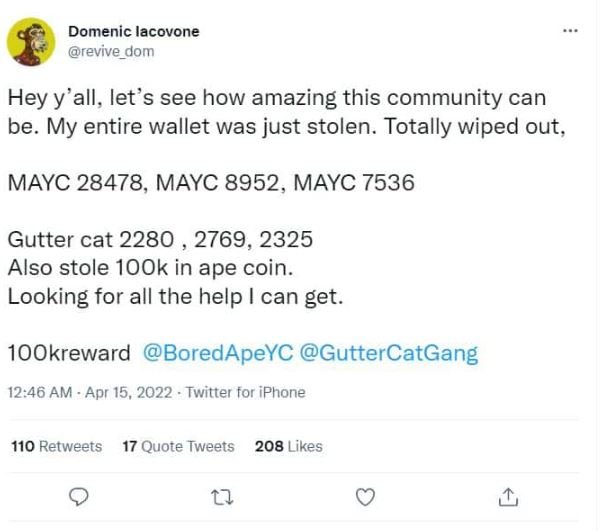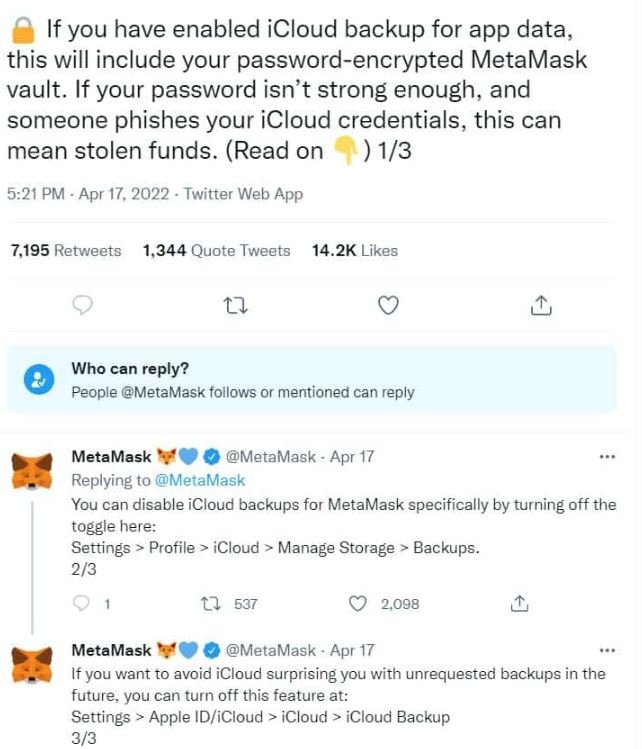The developers of the popular cryptocurrency software MetaMask asked Apple users to disable the automatic backup feature in iCloud after Domenic Lacovone, a collector of non-fungible tokens (NFT), reported the theft of their virtual assets.
The affected user, identified on Twitter as @revive_dom, reported that his digital wallet with digital assets worth about $650,000 USD was wiped out. Lacovone says he received an alleged call from Apple, so at no point did he suspect he was being the victim of a wire fraud variant.
The alleged Apple employee who contacted him asked for a code sent to his phone; after the user handed over the code, his e-wallet on MetaMask was completely emptied in a matter of a few seconds. The user was quick to report the incident to OpenSea, the world’s largest NFT selling platform, so all the stolen tokens have already been identified as suspicious.
As mentioned above, MetaMask issued a warning to Apple users after detecting an increase in phishing scams to steal digital assets in the same way that happened with Lacovone. Users of this cryptocurrency wallet who activate the backup feature could have sensitive information stored online, which represents a risky practice.

In a series of tweets, MetaMask noted that Apple users could risk losing funds if their Apple password isn’t secure enough, as threat actors could obtain these keys relatively easily.
MetaMask adds that the issue involves iPhone, iPad, and Mac users, and exists because the device’s default settings expose the user’s opening phrase, a MetaMask vault protected with a password stored in iCloud.

Given this, users were advised to disable automatic iCloud backups to mitigate the risk of exploitation. The digital wallet provider also gave detailed instructions on how to stay secure, although this has not been enough explanation for Lacovone, who will remain annoyed until he recovers his collection: “If 90% of people knew this, I would bet that none of them would have the MetaMask or iCloud application activated.”
To learn more about information security risks, malware variants, vulnerabilities and information technologies, feel free to access the International Institute of Cyber Security (IICS) websites.

He is a well-known expert in mobile security and malware analysis. He studied Computer Science at NYU and started working as a cyber security analyst in 2003. He is actively working as an anti-malware expert. He also worked for security companies like Kaspersky Lab. His everyday job includes researching about new malware and cyber security incidents. Also he has deep level of knowledge in mobile security and mobile vulnerabilities.











